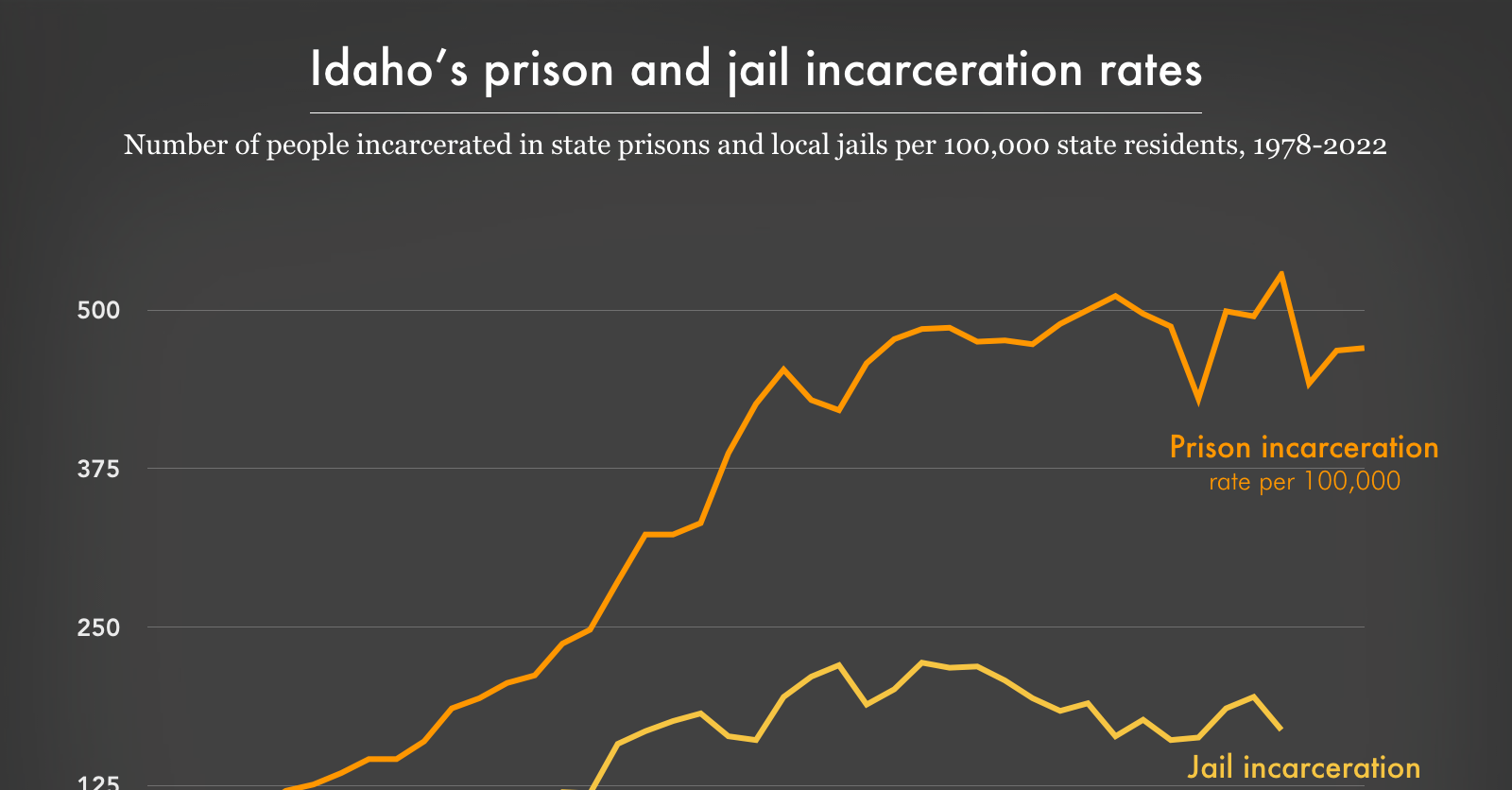
The law created a unified sentencing term, which 'unified' the indeterminate sentencing scheme that allows judges to impose a discretionary sentence with a determinate sentencing scheme, which mandated a "minimum period of confinement." This shifted the authority of the sentences from the Department of Corrections, who could modify sentence based on behavior, to the Judiciary. I.C. § 19-2513.
Since that time, incarceration rates in the state of Idaho have skyrocketed. This graph does not include the year 2024, in which the total incarceration rate for Idaho was 720 of 100,000, greater than the U.S. average of 614 of 100,000.
Prior to 1986, the sentencing scheme was a continuous process. The judge would give an indeterminate sentence, a 'maximum,' and the sentence would be adjusted by the Department of Corrections throughout the term of incarceration. In 1986, the Dean of the District Judges of Idaho — District Judge Edward Lodge — requested to the Idaho Senate Judiciary Committee to adjust the sentencing scheme to give the judiciary more authority in sentencing. District Judge Lodge wanted "to make sure the sentence [he] was giving was carried out. The result was the Unified Sentencing Act.
Posted by No_Membership407
5 comments
Not surprising considering they use private contractors for their prison system. Follow the money!
The 13th amendment commercializes the prison labor market. They used it after the civil war to start arresting people of color in the south at disproportionate rates and charging them with petty crimes to make them do hard labor.
System of a Down has a catchy song “Prison Song” that’s also worth a listen.
When Clinton cut a de facto deal to get his broader agenda passed, it seemed to have helped with the formalization of a permanent underclass. To me, and I am talking about my opinion only, it was the opposite of when Reagan cut deals with Tip O’Neill.
I’d hypothesize that not only has this not reduced the crime rate, it made it worse.
I’d also bet that this system does not apply to normallly white collar crime such as embezzelment or fraud.
Beyond the necessity of a properly functioning judicial system, there should be no incentive for anybody to put anybody else in jail.
Comments are closed.